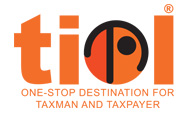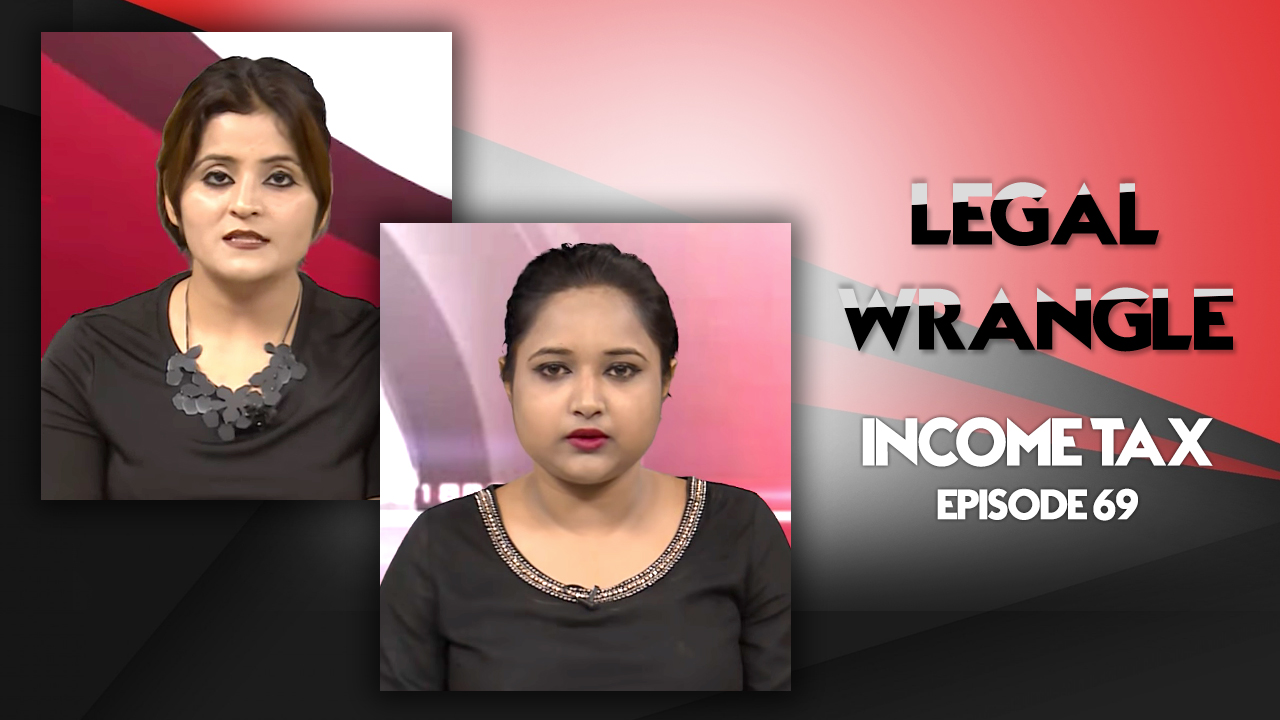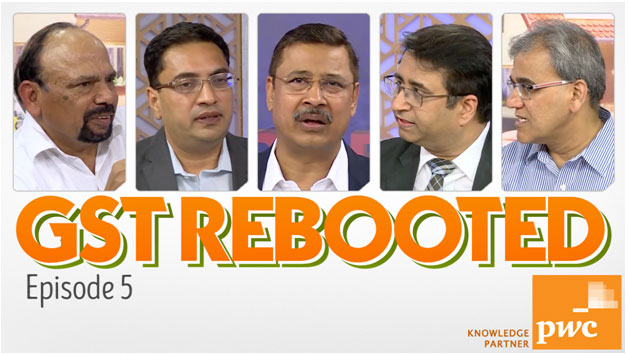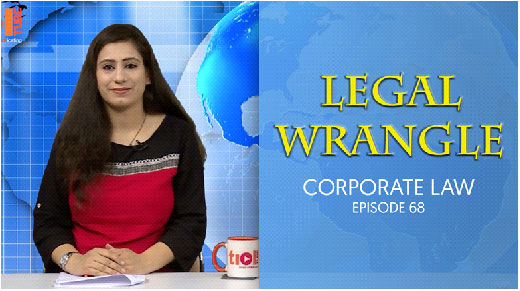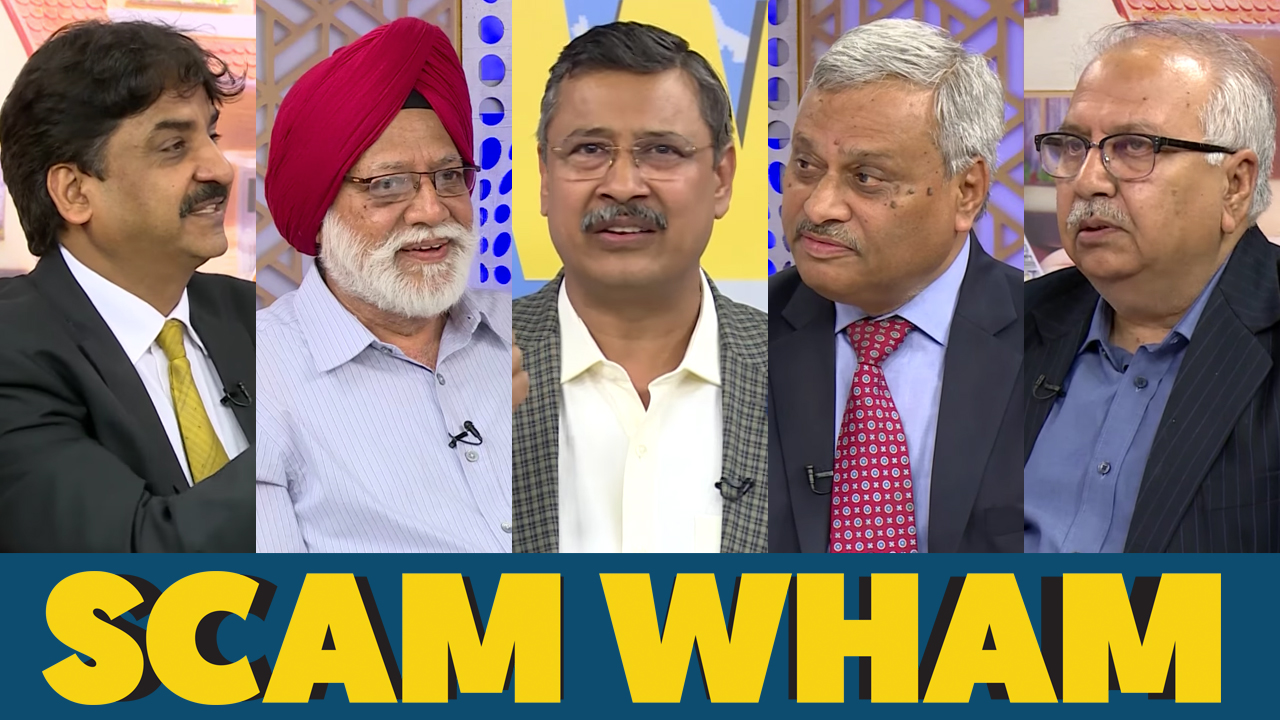|
SERVICE TAX SECTION
2018-TIOL-954-CESTAT-MAD + Story
Sify Technologies Ltd Vs CCE & ST
ST - Appellants make use of the software already developed by M/s.Verisign and generate digital certificates - software is owned by M/s.Verisign, USA and appellants have obtained only right to use the software - activity does not involve any development of software - even the Commissioner has held that the process of issue of DSC and that of SSLC is akin to each other; the only difference being in SSLC, the certification is voluntary, whereas the issue of DSC is recognized by Information Technology Act, 2000 - department vide letter dt.28.7.2008 has clarified that if the issuance of DSC does not involve development of IT Software, adoption or adaptation service related to IT software or certification of IT Software, the activity would not fall under Information Technology Services - When the process of issue of both these certificates are akin to each other, merely because SSLC is issued under voluntary requirement of the customer, the same cannot be classified under Information Technology Services – Impugned orders set aside and appeals allowed with consequential relief: CESTAT [para 7 to 9] - Appeals allowed : CHENNAI CESTAT
2018-TIOL-944-CESTAT-BANG
Jindal Aluminium Ltd Vs CCE & ST
ST - Assessee engaged in manufacture of various aluminium products - In addition to manufacturing goods on their own account, assessee also receives certain raw-materials such as copper scrap for conversion of same into ingots on job-work basis - The job-worked goods are returned to supplier of raw-materials after payment of duty - Dispute is with reference to valuation of such job-worked goods - The assessable value of goods which are manufactured on job-work basis is to be determined on basis of guidelines laid down by Apex Court in Ujagar Prints 2002-TIOL-03-SC-CX-CB - This means that the cost of raw-materials supplied to job-worker is to be included along with processing charges as well as element of profit for job-worker - Assessee has included only the cost of raw-materials contained in finished products as has been held by authorities below - But to arrive at proper value, the cost of entire raw-materials consumed in manufacture is to be added - Such conclusion is in line with decision of Apex Court and hence it is to be concluded that assessable value of job-worked goods needs to be re-worked to include the value of raw-materials attributable to burning loss which has escaped - Turning to the issue of time-bar demand, assessee's unit has been audited from time to time - Assessee has brought to notice that the unit has been audited in 2000-01, 2001-02, 2002-03, 2003-04, 2004-05 and the current audit of 2004-05 - Demand is sustainable on merit and the same is hit by the ground of time-bar as demand pertains to the period March 2001 to July 2004 for which SCN stands issued only on 31.03.2006 which is beyond the normal period of limitation - Impugned order set aside: CESTAT - Appeal allowed : BANGALORE CESTAT
2018-TIOL-943-CESTAT-MAD
Ford India Pvt Ltd Vs Comm, LTU
ST - Assessee along with Ford, USA and affiliates entered into an agreement with RICO, India - The components are sold to Ford, USA and affiliates and also non-Ford companies - The full consideration at the rate of 5% of incremental sale value is paid to assessee - Dispute is on said amount received by assessee is to be considered as a taxable income under category of BAS indicating the promotion and sale of goods on behalf of client - RICO, India - Proceedings were initiated based on particulars gathered from balance sheet of assessee - The consideration accruing to assessee in pursuance of value participation agreement was sought to be taxed after examination only during adjudication proceedings - No detail allegation or data was made or alleged in SCN proceedings - Whole of the consideration received cannot be subject to tax under heading BAS - Only because the full amount is assigned to assessee, tax liability on all the activities cannot be fastened on them - As assessee contested the demand on limitation considering the intricacies of the provisions of the agreement and assessee being not the sole service provider and full details were captured in balance sheet and other documents of assessee, case for extended period for demand for consideration received pursuant to value of participation agreement cannot be sustained - In this connection, decision of Tribunal in Hindalco Industries Ltd. and Blackstone Polymers 2014-TIOL-358-CESTAT-DEL is referred wherein Tribunal held that if the demands are made based on balance sheet and other publicly made details of the company, the same cannot be sustained for extended period.
Regarding tax liability on consideration received due to termination of arrangement, no identifiable service can be attributed for such consideration - It is rather a termination of arrangement which itself the original authority held as a service - By terminating the arrangement, assessee is adversely put to certain business loss - The consideration has been paid for such loss - No identifiable service could be attributed for such payment during the material time - Accordingly, the tax liability on such consideration could not be sustained: CESTAT - Appeal allowed : CHENNAI CESTAT
2018-TIOL-942-CESTAT-CHD
Canon India Pvt Ltd Vs CCE & ST
ST - Assessee is registered with Department for providing taxable services under category of "Management, Maintenance or Repair Services" and "Goods Transport Agency Services" - Assessee imported various Canon Products from M/s CSPL on a principal to principal basis and subsequent sale or leasing in domestic market - SCN have been issued on the basis of liability of service tax on Financial Leasing Service - In impugned order, Commissioner (A) has analyzed the nature of leasing activity in details and concluded that activity of assessee is squarely covered by "Operating Lease" instead of "Financial lease" - Since there is no transfer of ownership of goods at the end of lease, same does not fall in category of 'financial lease' and falls in category of 'operating lease' as rightly concluded by Adjudicating Authority - Hence, after concluding that the service fall under category of 'operating lease' and not in 'financial lease', Adjudicating authority could not have confirmed demand since the definition of 'Banking and Financial Service' has been interpreted to include only 'financial lease' and not the 'operating lease' - Demand of service tax on this ground is unsustainable and is therefore set aside.
BAS - The allegation in this regard is that authorized distributor agreement between M/s CSPL and assessee provides that M/s CSPL shall from time to time provide reasonable support to the assessee for promotion and sale of products in India - Assessee have argued that they import Canon products from M/s CSPL as sole distributor of its products in India - These imports and sales are carried out on a principal to principal basis where products are first purchased from M/s CSPL and then sold in domestic market - Assessee undertakes certain promotional activities to promote its own sales in same market and due to high spending on such activities, they falls short of funds sometime and to cover the same, CSPL grant subsidy or discount to assessee in form of reimbursement of part such expenses towards such promotional activities - For the previous period 2003-2008, Department has accepted the view that assessee is carrying out sales and promotion on their own behalf - Hence, these activities are not covered under BAS - It is difficult to agree with finding of Commissioner (A) that it is not an export of service - Since it will be export of service, in that circumstances too, no service tax is leviable and the demand on this issue is therefore unsustainable: CESTAT - Appeal allowed : CHANDIGARH CESTAT
CENTRAL EXCISE SECTION
2018-TIOL-515-HC-P&H-CX + Story
Asianlak Health Foods Ltd Vs UoI
CX - Section 32O of the CEA, 1944 - rejection of application for settlement on the ground that in an earlier case, penalty was imposed on the applicant - Explanation inserted in section 32O(1)(i) is clarificatory as evidenced from the Statement of Objects and Reasons w.r.t clause 94 of Finance Bill, 2014 and being clarificatory, has retrospective effect - plain language of the section does not warrant an interpretation to the effect that concealment of particulars only before the Settlement Commission and not before the Central Excise Officer is contemplated - The legislative intent is quite clearly to bar a party from making an application under section 32E of the 1944 Act for settlement if he has concealed particulars of his duty liability - Petition dismissed: High Court [para 7 to 11] - Petition dismissed : PUNJAB AND HARYANA HIGH COURT 2018-TIOL-948-CESTAT-BANG
Shree Ram Industries Vs CE & ST
CX - Shifting of factory - Removal of used capital goods and availment of CENVAT credit - Rule 3(6) of CCR, 2004 applies and not rule 4(2) - No requirement of obtaining any permission u/r 10 of CCR, 2004 for transfer of credit - since details of clearance and availment of credit mentioned in ER-1 return, no malafide established; invocation of extended period not justified - Impugned order set aside and appeal allowed with consequential relief: CESTAT [para 4] - Appeal allowed : BANGALORE CESTAT
2018-TIOL-947-CESTAT-MAD
Schneider Electric Infrastructure Ltd Vs Comm, LTU
CX - Assessee is manufacturer of Vacuum Interrupter Tubes (VITs) and Vacuum Contactor Unit (VCU) - It was observed that assessee had removed such goods for delivery to different independent buyers as well as to their own units - Department views that value of goods for payment of duty from one unit to the other of same company was required to be adopted on basis of prices available for delivery of comparable goods to independent buyers in terms of Rule 6(1)(b) of CEVR, 1975 - Tribunal had given directions that denovo adjudication has to be done only on considering that goods cleared by assessee are liable to be assessed by adopting value of comparable goods - However, these directions were undoubtedly for the adjudicating authority and were also followed by said authority in full in denovo proceedings - CAS-4 guidelines were discernibly not been introduced when this matter first came before the Tribunal - At the same time, it is to be noted that there are decisions / judgments, which have consistently laid down that the benefit of CAS-4 valuation can and should be extended even to clearances which have occurred before the Board introduced the same vide Circular dated 13.2.2003 - This being so, Tribunal at this stage, will have to follow the said ratio rendered by higher appellate courts - Even in assessee's own case also, for a period prior to introduction of CAS-4 guidelines, dispute has been decided by adjudicating authority concerned in their favour, which decision has not been appealed against by department - Benefit of CAS-4 guidelines cannot be denied to impugned clearances - It is ordered accordingly - However, for limited purpose of recalculating the duty liability, based on CAS-4 guidelines and Chartered Accountant's certificate submitted by assessee vide their letter dated 10.8.2010, matter remanded to the adjudicating authority - In view of confusion that have occurred during entire period of dispute, penalty cannot sustain and for which reason the penalty imposed under Rule 173Q is set aside: CESTAT - Appeal partly allowed : CHENNAI CESTAT
2018-TIOL-946-CESTAT-MAD
India Cements Ltd Vs CCE
CX - Assessee engaged in manufacture of Ordinary Portland Cement and Portland Pozzolana Cement - A SCN was issued alleging irregular availment of cenvat credit on various input services - The eligibility of credit in respect of most of the services have been decided in case of Rajdhani Crafts 2012-TIOL-2054-CESTAT-DEL and Hydus Technologies India Pvt. Ltd. 2017-TIOL-1189-CESTAT-HYD - However, it requires verification as to whether subject services are eligible for credit after going through the invoices - The whole intention of input services distribution is to facilitate availment of credit by a manufacturer who has multiple units - This being the case, when invoices are proper and there is no dispute with regard to consumption of services and payment of service tax, credit availed on ISD invoices are to be allowed if otherwise in order - Issue requires reconsideration - Adjudicating authority shall also look into admissibility of input services and see whether any services come under exclusion part of definition - After amendment to the definition of 'input services' in 2011, services falling under exclusion will not be eligible for credit - Thus, matter remanded: CESTAT - Matter remanded : CHENNAI CESTAT
2018-TIOL-945-CESTAT-MAD
Eid Parry India Ltd Vs CCE & ST
CX - The assessee-company, a 100% EOU, manufactured plant vitalizer under a brand name & classified the same as 'Animal or Vegetable Fertilizers' - The Revenue sought to classify the same as 'Miscellaneous Chemical Products' and 'Plant Growth Regulators' - Demand for differential duty was raised, since the manufactured product, being fertiliser, is eligible for full exemption - Moreover, the assessee also claimed concession on account of clearances made to DTA - The Revenue also sought to levy Education Cess on such clearances - In the Tribunal's decision in Northern Minerals Ltd. Vs CCE New Delhi the 'plant growth promoter' was classified as 'Bio-fertilizer' - Considering the use of plant growth regulators and fertilisers, the Tribunal held that plant growth promoter could not be considered synonymous with plant growth regulator - In the present case, the product in question is not plant growth regulator - It is more in the nature of plant growth promoter or fertilizer - Hence the assessee's classification is correct -Regarding the eligibility for concession on goods cleared to DTA, one condition for concession is that the goods be produced wholly from raw materials manufactured in India - However, the assessee used imported paraffin wax - Although it lost its identity during manufacture, it is still a raw material - Hence for non-fulfilment of such condition, the assessee is ineligble for concession - Further, in absence of any suppression of fact, invocation of extended limitation is unwarranted - Therefore, the claim for exemption wherever duty is payable is not sustainable - Duty demand upheld for normal period only: CESTAT - Assessee's Appeal Allowed : CHENNAI CESTAT
CUSTOMS SECTION
2018-TIOL-949-CESTAT-BANG
Mangalore Refinery And Perochemicals Ltd Vs CC
Cus - Assessee have an oil refinery where crude oil is refined and diverse kind of petroleum products are manufactured - They import crude and store in storage tanks approved under Section 58 of Customs Act, 1962 - On scrutiny of documents filed by assessee, in connection with finalization of provisional assessments of said cargoes, it was found that they had made payments to supplier on the basis of Bills of Lading quantity/DBL irrespective of quantity received in their shore tanks - Main issue is whether the duty is to be calculated on proportionate value of quantity actually imported/received into the shore tank or on the value on quantity contracted/mentioned in Bill of Lading - Assessee had also contended certain other issues relating to valuation specifically the inclusion of demurrage charges in assessable value - It is the submission of assessee that demurrage charges are not includable in assessable value or cargo imported prior to 26.9.2006 whereas adjudicating authority has made applicable from 2.3.2001 as per CBEC Circular 26/2006 - Assessee had also disputed the method adopted for determining shore tank receipt quantity as no deduction is allowed to free water content while calculating the shore tank quantity of crude oil which caused accounting problems as there is a difference in assessee's calculation and the department's calculation - Since all the issues have been settled by apex court in assessee's own case, therefore, by following the same, impugned orders are not sustainable in law: CESTAT - Appeal allowed : BANGALORE CESTAT
2018-TIOL-941-CESTAT-MAD
Tvs Motor Company Ltd Vs CC
Cus - Assessee had imported duty free materials under DEPB scrips in December 2000, on the strength of DEPB scips purchased from M/s. Exim International - It was subsequently found that the said Exim International had obtained DEPB scrips fraudulently on the basis of fake documents - There have been a plethora of judicial decisions on this very issue - Apex Court on the very same issue, in a subsequent judgment dated 10.03.2008 has dismissed an appeal against the judgment of Punjab & Haryana High Court in case of Leader Valves Ltd 2007-TIOL-701-HC- P&H -CUS - The High Court in that case had held that when the assessee is not a party to fraud and purchased DEPB from the open market in bonafide belief of its being genuine, it paid full price and availed the benefit merely because at a later stage, DEPB had been found to be fabricated, assessee could not be deprived of benefits which were legitimately availale to them - A three member Bench of Tribunal in case of Binani Cement Ltd. 2008-TIOL-2058-CESTAT-AHM interalia referring to Apex Court judgment in ICI India Ltd. , have held that subsequent cancellation of DEPB licence, when licence already stood utilized and exhausted, will not have any effect on imports already made on basis of such licences which were valid at the time of imports - In case of Vallabh Design Products 2007-TIOL-842-HC-P&H-CUS the P & H High Court held that in case of DEPB scrips obtained by fraud and forgery and where transferee of these scrips are not a party to the fraud and were obtained on payment of full price from open market on bonafide belief, transferee is not liable to duty, penalty and interest - There is no allegation that assessee have colluded in any manner with Exim International in fraud committed by latter for obtaining DEPB scrips - Assessee have purchased the scrips in a bonafide manner and with bonafide belief that they were genuine and valid - This being so, issue decided in favour of assessee: CESTAT - Appeal allowed : CHENNAI CESTAT
|
|

